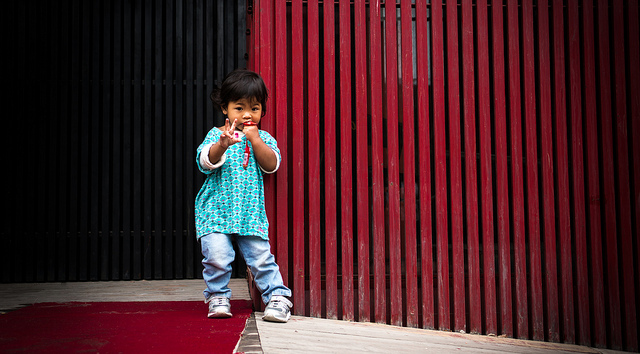Relaxing the One-Child Policy
 Credit: http://tinyurl.com/owx66g5
Credit: http://tinyurl.com/owx66g5
Over 35 years after its introduction, China has relaxed the one-child policy. By means of a vague statement issued last week, the ruling Communist Party has indicated that couples will now be allowed to have two children.
Originally put in place to control population growth, the policy has been the subject of much criticism. While Communist Party officials continually justified the policy by claiming that China’s population growth rate needs containment to avoid ruinous consequences, there are doubts as to whether the one-child policy can really credit itself with this. According to some sources, the population reductions that the one-child policy was put in place to precipitate were already occurring in the 1970s, while the policy wasn’t introduced until 1979 (1).

On the surface this scaling back of the policy appears an unambiguous win for human rights. Since Deng Xiaoping’s economic reforms opened China to the world and instituted the beginnings of the state-managed, semi-capitalist economy in 1989, it has been policies like this one that remind the rest of the world that China remains a totalitarian state. In draconian fashion, the one-child policy has permitted gross intrusions into the private life of citizens by state governments, an obvious offense to the liberty at the heart of human rights discourse. The policy has also spawned forced abortions, sterilizations, and infanticide, each of which offend the reproductive rights of women. Such control over the lives of citizens has been considered illegal by the UN in a series of documents adopted at UN conferences. Most notably was the declaration made at the 1994 International Conference on Population Development:
“[R]eproductive rights embrace certain human rights that are already
recognized in national laws, international human rights documents
and other consensus documents. These rights rest on the recognition
of the basic right of all couples and individuals to decide freely and
responsibly the number, spacing and timing of their children and to
have the information and means to do so, and the right to attain the
highest standard of sexual and reproductive health. It also includes
their right to make decisions concerning reproduction free of
discrimination, coercion and violence, as expressed in human
rights documents” (2)
In addition, due to a preference for boys – who carry the family name and are often regarded as better labor for rural families – the policy has had disastrous effects on the female population. According to the non-governmental organization All Girls Allowed, the number of forced abortions of baby girls that occurs every year in China is in the millions (3). This has resulted in a surplus of males in China that is equivalent to the size of Canada’s population (4).
A relaxing of this policy (which already had some exceptions for rural communities, families where both parents were only children, and minority groups) is a small step in the right direction. Certainly, some couples who previously wanted to have two children will now be allowed to do so. But on it’s whole, the Communist Party’s actions here are grossly inadequate to address the human rights concerns that stem from the policy, and should not be confused for a newfound desire to relinquish their grasp on citizens of the state.
The Party still maintains that it has the right to control people’s fertility, an idea that has been supported by decades of propaganda attributing successes of declining population growth rates to the policy and urging people to put the state interests over their own. There has also been no commitment to a long term plan to further scale back the policy in any way (1). Human Rights Watch, an NGO, claims that the coerced gynecological exams and state pressures on women to insert intra-uterine decives to prevent pregnancy will continue under these changes. (5) Fines and the use of the hukou system of household registration, will also continue to impinge on the reproductive rights of families.
Ultimately, the party shows little remorse for the emotional pain, and sometimes financial ruin or suicide that the policy has imposed on countless families over the years. It will not compensate past victims in any way, nor will it be able to bring back the lost children, brothers, and sisters (5). This does not bode well for the future of human rights in China. Instead, it only makes more clear the reality that human rights will continue to be a tool for the government to pay lip service to the needs of its civilians when convenient, but will continue to overlook where it may threaten the authority of the Party’s government.
(1) http://www.economist.com/news/china/21677273-china-has-abandoned-its-more-35-year-old-one-child-policy-now-couples-can-have-two-china
(2) http://www.reproductiverights.org/sites/crr.civicactions.net/files/documents/RRareHR_final.pdf
(3) http://www.allgirlsallowed.org/forced-abortion-statistics
(4) http://www.theguardian.com/commentisfree/2015/nov/01/china-one-child-policy
(5) https://www.hrw.org/news/2015/10/29/dispatches-ending-one-child-policy-does-not-equal-reproductive-freedom-china
